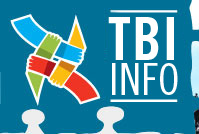You are here : Home > Library > Resilience > Resilience and family > 2007 > Landau, J. (2007) Enhancing resilience: Families and communities as agents (...)
Landau, J. (2007) Enhancing resilience: Families and communities as agents for change. Family Process 46(3), 351-365
In this article, the Linking Human Systems (LINC) Community Resilience model, a theoretical framework for initiating and sustaining change in communities that have undergone rapid and untimely transition or loss, is presented. The model assumes that individuals, families, and communities are inherently competent and resilient, and that with appropriate support and encouragement, they can access individual and collective strengths that will allow them to transcend their loss. This competence can be nurtured by helping people regain a sense of connectedness with one another; with those who came before them; with their daily patterns, rituals, and stories that impart spiritual meaning; and with tangible resources within their community. Rather than imposing artificial support infrastructures, LINC interventions engage respected community members to act as natural agents for change. These "community links" provide a bridge between outside professionals, families, and communities, particularly in circumstances in which outside intervention may not be welcomed. The article illustrates how LINC interventions successfully have been used in communities around the world.
Terms of Use | 2007-2008 All rights reserved © INFO-TBI. Graphic design : François Ménard | Design : WebConforme

